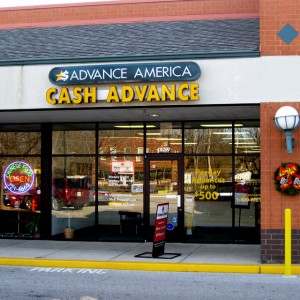Five minutes is all it takes to help cap Missouri payday loans at 36%
As I indicated here, Missouri is considering a 36% rate cap for payday loans. Currently, payday lenders often charge 400% and 500% interest on such loans that are financially devastating to the poor and the working poor (Missouri’s 9% “usury” cap does not apply to payday loans). Bill 2116 is now pending before The House Committee on Financial Institutions, which is chaired by Republican State Representative Mike Cunningham. This important bill will not get a hearing unless Mr. Cunningham decides to grant a hearing, at his discretion. This single bill, HB 2116, “combines two bills filed by Representative Mary Still in January into one bill dealing with both annual percentage rates (APR) caps and restrictions of nursing homes offering payday services to employees.” Here’s how you can help. Please consider writing to Mr. Cunningham today, requesting him to hold a hearing regarding Bill 2116, to consider capping Missouri payday loans at 36% interest. Your letter can be two sentences, or you can spell out your reasons in more detail. Mr. Cunningham can be reached at mike.cunningham@house.mo.gov . His snail mail address is:
Representative Mike Cunningham 201 West Capitol Avenue, Room 411-2 Jefferson City MO 65101 Office Phone: 573-751-3819 Fax: 573-526-1888 Even a small number of emails, faxes or letters will make a big difference. If you want to be part of a citizens’ movement cap interest rates of payday loans at 36%, please take a moment to write to Mr. Cunningham. I can’t emphasize enough that your single email, fax or letter could be the difference between this bill getting a hearing, or nothing being done. As for the detailed reasons for imposing a rate cap, see my earlier post on the proposed legislation. I have also inserted (below) a letter written by John Campbell (an attorney with whom I work). Thank you so very much for considering this. Please do consider sending me a copy of any emails you send to Mr. Cunningham. [Letter from John Campbell to Mr. Cunningham]
Representative Cunningham:
I am writing to request that the House Committee on Financial Institutions grant a hearing on Bill 2116, a bill to limit the interest rate on payday loans to 36%.
I have extensive personal experience with payday loans. I am an attorney, and I spend much of my time representing consumers. In the course of my practice, I have talked with dozens of payday loan borrowers. Their stories are remarkably similar. Payday loan borrowers are generally low wage earners with high school degrees or less, and they are typically in desperate situations when they go to a payday lender. In my experience, payday loans lead to create a debt cycle that is difficult for most borrowers to escape.
[more . . . ]

